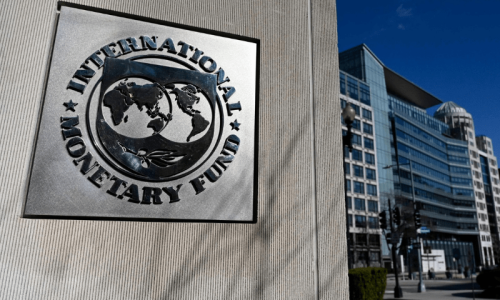ISLAMABAD, Nov 27: Removal of socio-economic disparity and paving way for a representative government is the only solution to the situation in Balochistan.
These views were expressed by speakers at a roundtable held at Quaid-i-Azam University (QAU) Saturday.
They said the recent uprising and unrest in Balochistan was different from the ones in the history of the province, as now the resentment of the educated youth was against the system.
They said instead of bringing the true representatives of the masses to dominate the politics in Balochistan, the federal government was using 'sardari system' and religion as tools to rule the province.
The roundtable, 'The state of national integration in Pakistan: the case of Balochistan' was organised by the history department of the university in collaboration with the Hanns Seidel Foundation.
Chairing the session, former education minister Balochistan Dr Fazila Aliani said the establishment was not permitting economic growth and democracy in the province.
She said the results of the NFC award and 18th amendments would be negligible in Balochistan due to the wrong policies of the establishment.
“The centre is still following the policies of taking the province for its land use and resources only,” Dr Fazila said, adding things changed with the development of human resource in any region.
The speakers said successive federal governments and the establishment had been using religion as a tool to exercise control over the country.
They said the elites had been using Islam to protect their privileged position since the inception of the country. They said the other serious problem faced by the masses of Balochistan was the strong Sardari system that was being protected by the federal government.
Dr Tanvir Anjum said Islam is not the only binding force in the country, adding the federal government needed to focus on recognising the ethnic values, culture and socio-economic needs of all the diversified groups living in the country.
“Religion has been the binding force in the creation of Pakistan but it is now being used for exploitation of the masses.” Dr Riffat Hussain, chairman of the defence and strategic studies department, said due to vested interest Islam had become a political tool in the country.
Dr Javed Haider, Zafarullah Khan and Dr Ishaq Baloch said the current sardari system was introduced by the British in the middle of the 19th century, as under the earlier system Mirs were elected by the tribes for a time period.
They said Khan of Kalat endeavoured with the British to make Balochistan an independent state but his attempts were foiled by the loyalists Balochis and Pashtoons of Balochistan.
“But the case of both these people has not been presented in the correct manner,” Dr Haider added.














































Dear visitor, the comments section is undergoing an overhaul and will return soon.